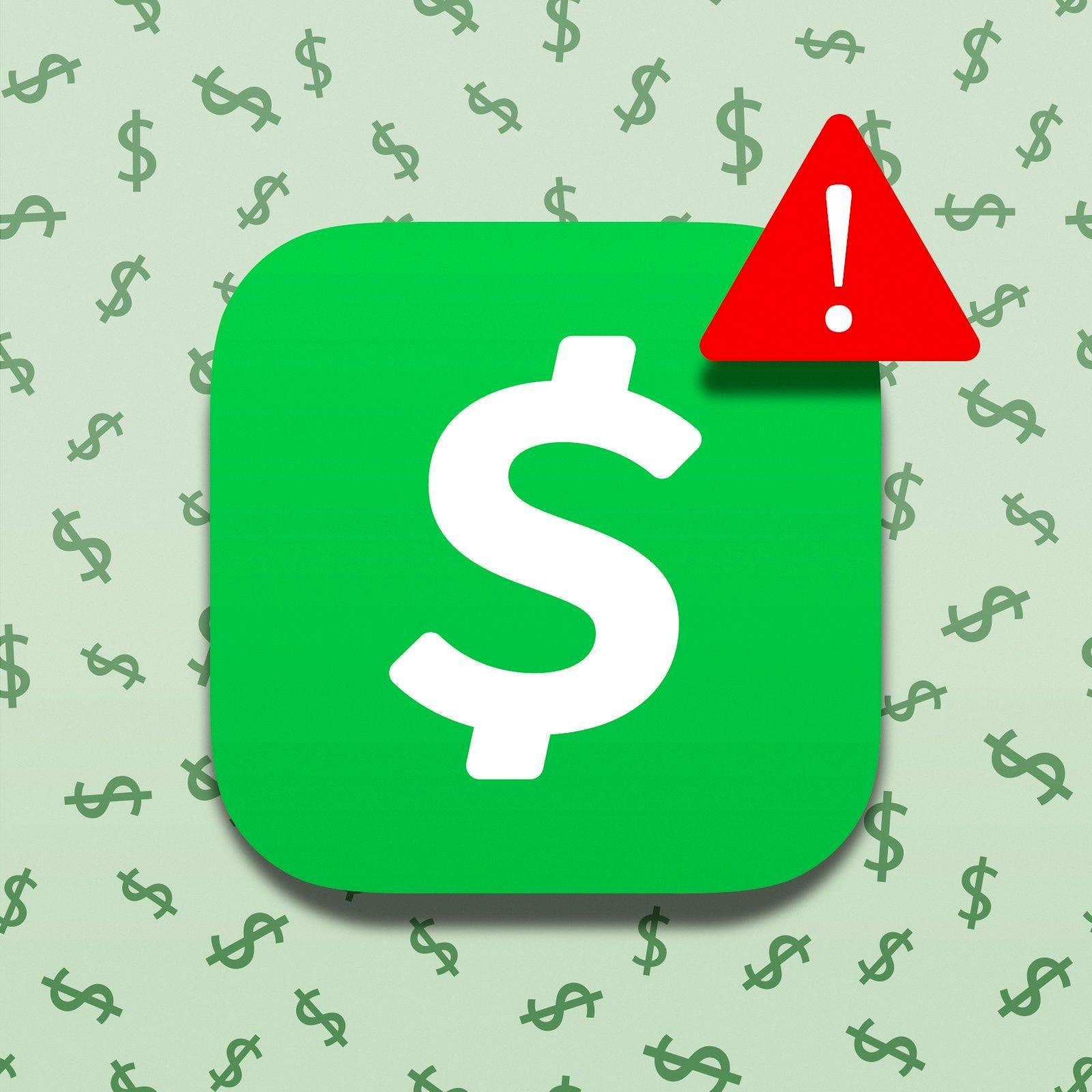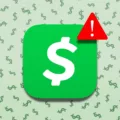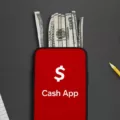Scamming is a serious issue that affects many people, and unfortunately, it can happen on various platforms, including Cash App. Cash App is a popular mobile payment service that allows users to send and receive money quickly and easily. However, it’s important to be aware of the potential risks and scams that can occur.
One common scam on Cash App involves a random person sending you money unexpectedly. While it may seem like a stroke of luck, it’s essential to exercise caution. This could be a scammer attempting to exploit your trust or gather sensitive information from you. If you receive money from an unknown person, it’s advisable to contact the Cash App support team immediately to report the incident.
When it comes to fraudulent transactions on Cash App, the situation can be more challenging to resolve compared to credit card fraud. While credit card users have chargeback rights that protect them from unauthorized purchases, Cash App does not offer the same level of guarantees. In some cases, Cash App may cancel a transaction if you notify them promptly, but once the payment is sent and reaches the scammer’s account, it may be difficult, if not impossible, to recover the funds.
If you suspect that your Cash App account has been used for unauthorized or illegal activities, it’s crucial to take immediate action. Contact the Cash App support team to report the incident and provide them with all the necessary information. Additionally, Cash App’s terms and conditions state that if they reasonably suspect your account has been involved in unlawful activities, they may share your information with law enforcement.
Engaging in fraudulent activities, including scamming on Cash App, can have severe legal consequences. Depending on the nature and extent of the scam, individuals involved may face charges such as bank fraud, mail fraud, or wire fraud. These offenses carry significant penalties, including hefty fines and lengthy prison sentences. Bank fraud, for instance, can result in fines of up to $1,000,000 and a prison sentence of up to 30 years. Mail and wire fraud, on the other hand, can lead to a maximum prison sentence of 20 years, and if a bank is involved, the potential fine can increase to up to $100,000.
It’s essential to understand the potential risks associated with Cash App and other payment platforms. To protect yourself from scams, it’s advisable to be cautious when receiving unexpected payments from unknown individuals. If you encounter any suspicious activity, promptly report it to Cash App support and provide them with all the necessary details. By staying vigilant and taking proactive measures, you can help protect yourself and others from falling victim to scams on Cash App.
What Happens If You Get Scammed on Cash App?
When it comes to getting scammed on Cash App, the situation can be quite challenging. Unlike credit card transactions, which have chargeback rights for fraudulent purchases, there are no guarantees for Cash App fraud. This means that if you fall victim to a scam on Cash App, recovering your money can be much more difficult.
However, there are a few steps you can take if you suspect you’ve been scammed on Cash App:
1. Act quickly: If you notice any suspicious activity or believe you’ve been scammed, it’s crucial to act as soon as possible. Contact Cash App’s customer support immediately and provide them with all the necessary details of the fraudulent transaction.
2. Cancel the transaction: If you catch the scam early enough, there is a possibility that Cash App may be able to cancel the transaction and prevent the funds from reaching the scammer’s account. However, this is not guaranteed, and the outcome will depend on how quickly you report the issue.
3. Contact your bank: If you linked your Cash App account to a debit card or bank account, it’s advisable to contact your bank as well. They may be able to provide guidance or assistance in resolving the issue.
4. Report the scam: If you believe you’ve been scammed, it’s important to report the incident to your local law enforcement agency. While they may not be able to recover your funds, reporting the scam can help prevent others from falling victim to the same fraudulent activity.
5. Be cautious in the future: To avoid future scams on Cash App or any other payment platform, it’s essential to be vigilant. Double-check the recipient’s information before sending any money, be wary of unsolicited requests or offers, and never share your personal or financial information with unknown individuals or entities.
It’s important to note that once you send a payment on Cash App, especially if it reaches the scammer’s account, recovering the funds can be extremely challenging. Cash App’s terms and conditions state that transactions are non-refundable, so there are no guarantees of getting your money back.
If you get scammed on Cash App, your options for recovering your money may be limited. Acting swiftly, contacting Cash App support, and reporting the incident to the appropriate authorities are essential steps to take. However, it’s crucial to exercise caution and be aware that once the funds are sent, they may be gone for good.

Does Cash App Report to Police?
Cash App may report to law enforcement if there is reasonable suspicion that your account has been used for unauthorized, illegal, or criminal activities. By using Cash App, you explicitly authorize them to share information about you, your account, and any transactions you have made with law enforcement agencies.
Here are some key points to consider:
– Cash App is committed to maintaining the security and integrity of its platform. If they have reason to believe that your account has been involved in any illegal or criminal activities, they are obligated to cooperate with law enforcement authorities.
– When you use Cash App, your transactions and account information can be monitored for potential fraudulent or suspicious activities. This is done to protect you and other users from potential harm.
– If Cash App detects any suspicious or unauthorized transactions, they may freeze your account temporarily to investigate further. During this time, they may collect and share information about you and your transactions with law enforcement agencies as required by law.
– Sharing information with law enforcement is a common practice among financial service providers to combat fraud, money laundering, and other illegal activities.
– It is important to note that Cash App’s cooperation with law enforcement is done in accordance with applicable laws and regulations, and your personal information is protected as per their privacy policy.
How Long Does a Scammer Go to Jail For?
A scammer can face varying lengths of imprisonment depending on the nature and severity of the scam. The duration of a jail sentence for a scammer is determined by the specific laws in the jurisdiction where the crime was committed. However, I can provide you with some general information about the potential jail terms for different types of scams in the United States.
1. Bank Fraud: Engaging in bank fraud can result in a maximum prison sentence of up to 30 years and/or a fine of up to $1,000,000. The actual sentence imposed will depend on factors such as the amount of money involved, the level of sophistication of the scheme, and the defendant’s criminal history.
2. Mail and Wire Fraud: Both mail fraud and wire fraud carry a maximum prison sentence of up to 20 years. These charges are often applied when scammers use postal mail or electronic communications (such as emails or phone calls) to defraud victims. If the scheme involves a bank, the potential fine increases to up to $100,000.
It is important to note that these are general guidelines, and the actual sentence for a scammer can vary depending on the circumstances and the discretion of the judge. Additionally, different countries have their own legal frameworks, so the penalties for scams may differ outside of the United States.
Please be aware that engaging in any form of fraudulent activity is illegal and can have serious consequences. It is always best to stay informed, exercise caution, and report any suspicious activities to the appropriate authorities.
What If a Random Person Wants to Send Me Money on Cash App?
If a random person wants to send you money on Cash App, it is important to proceed with caution as it could potentially be a scam. Here are some steps you can take to ensure your safety:
1. Verify the person’s identity: Before accepting any money, make sure you know the person who is sending it to you. Reach out to them via a secure communication channel, such as a phone call or email, to confirm their identity and intentions.
2. Be wary of unexpected payments: If someone you don’t know sends you money out of the blue, it’s essential to be skeptical. Scammers often use unsolicited payments as a tactic to gain your trust and later defraud you.
3. Contact Cash App support: If you have any doubts or suspicions about the transaction, it is best to contact the Cash App support team immediately. They can provide guidance on how to proceed and help address any potential issues.
4. Report the incident: If you believe you have encountered a scam, report the incident to Cash App. They have protocols in place to investigate and take appropriate action against fraudulent activities.
5. Avoid canceling the payment yourself: If the person who sent you money on Cash App asks you to cancel the payment and send the funds back, be cautious. This could be another tactic used by scammers. Instead, contact Cash App support and follow their instructions on how to handle the situation.
Remember, it’s always better to err on the side of caution when dealing with unexpected financial transactions from unknown individuals. Stay vigilant and prioritize your online safety.
Conclusion
Scamming is a serious issue that affects many individuals and businesses. It involves deceptive practices aimed at tricking people into giving up their money, personal information, or other valuable assets. Scammers often use various techniques such as phishing, identity theft, fake websites, and fraudulent transactions to carry out their schemes.
It is important to be aware of the signs of scams and take necessary precautions to protect yourself. This includes being cautious of unsolicited requests for personal information, verifying the legitimacy of websites and businesses before making transactions, and regularly monitoring your financial accounts for any suspicious activity.
When it comes to online platforms like Cash App, it is crucial to exercise caution and only engage in transactions with trusted individuals or businesses. If you become a victim of a scam, it is important to report the incident to the appropriate authorities and contact the platform’s support team to seek assistance.
While credit card users have chargeback rights for fraudulent purchases, there are no guarantees for Cash App fraud. It is crucial to notify the platform immediately if you suspect any unauthorized or fraudulent activity. However, once a payment is sent, especially if it reaches the scammer’s account, it is likely gone forever.
In some cases, law enforcement agencies may be involved to investigate and prosecute scammers. Bank fraud and mail and wire fraud are serious offenses that carry severe penalties, including hefty fines and lengthy prison sentences.
To protect yourself from scams, it is essential to stay informed about the latest scamming techniques, be vigilant with your personal information, and use secure payment methods and platforms. Remember, if something seems too good to be true, it probably is. Trust your instincts and take the necessary precautions to safeguard yourself against scams.













